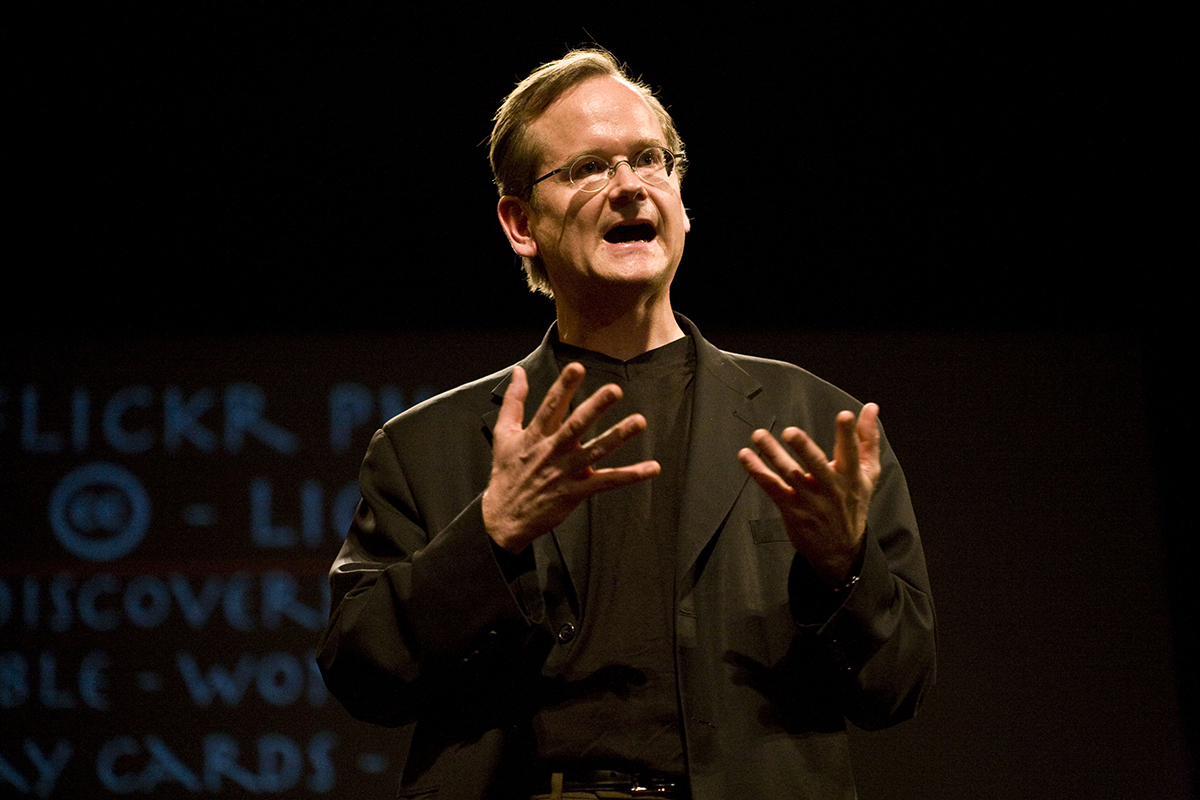Larry Lessig Out-Fundraises Jim Webb, Lincoln Chafee, and Four Republicans in Presidential Race

Larry Lessig photo by Robert Scoble on Flickr/Creative Commons
Free Internet advocate and presidential hopeful Larry Lessig has no political experience, wasn’t invited to the Democratic debate this week, and doesn’t even want to serve a full term as president—he says that if he wins, he’ll resign almost immediately. (Update: He’s changed his mind about that.) Yet the Harvard professor raised over $1 million between July and September—more than Democratic rivals Jim Webb and Lincoln Chafee, and four Republican presidential hopefuls, accordings to third-quarter reports filed yesterday with the Federal Election Commission.
Webb raised $697,000, while Chafee raised a paltry $15,457 (including $4,121 from himself). Lessig’s numbers put him in the same league as fellow Democrat Martin O’Malley, who raised $1,283,000, though they’re both well behind Hillary Clinton at $30 million and Bernie Sanders at $26 million.
Lessig also outraised four Republican candidates for president, all of them relegated to the Republicans’ undercard debates: Bobby Jindal ($579,000), Rick Santorum ($388,000), George Pataki ($154,000), and Jim Gilmore ($106,000).
Tech leaders in California form a big part of Lessig’s donor base. Wikipedia founder Jimmy Wales, Medium CEO Evan Williams, WordPress developer Matt Mullenweg, and Internet Archive founder Brewster Kahle all contributed the maximum $5,400 to his campaign. Lessig’s alliance with Silicon Valley dates back to his work on Internet copyright law and his cofounding of the Creative Commons. Sci-fi film director J.J. Abrams and his wife, Kathleen McGrath, also chipped in the max, as did Cenk Uygur, host of the left-leaning online news show The Young Turks.
Almost 10 percent of Lessig’s million came from Massachusetts, the second-biggest state in his fundraising totals behind California. Maxed-out $5,400 contributors from the Boston area include capital investors such as Dan Nova of Highland Capital Partners; Arnold Hiatt, the retired former president of Stride Rite and a longtime ally of Lessig’s in the effort to get money out of politics; and Joichi Ito, director of the MIT Media Lab, and his wife, Mizuka Ito, cofounder of ConnectedCamps, a camp for Minecraft-playing kids. Ophelia Dahl, president and executive director of the international aid organization Partners in Health, gave $2,700.
Lessig, who’s running for president on a platform of political reform, says that if elected, he’d resign immediately after enacting the Citizens Equality Act, his proposal to revamp American campaign financing, congressional redistricting and voting rights. Until such time as that happens, though, money still rules politics—so Lessig is spending as freely as any other pol. His campaign spent $442,000 in the year’s third quarter, including $85,000 on a media ad buy and tens of thousands of dollars on Google AdWords pay-per-click ads.
His immediate goal, he says, is to attract enough national support to make it into the second presidential debate on November 14. Only candidates who get at least 1 percent in three credible national polls will make it to the podium, but right now, many national pollsters aren’t even including Lessig in their polls. Maybe they’ll take him more seriously now that his net worth has gone up.


